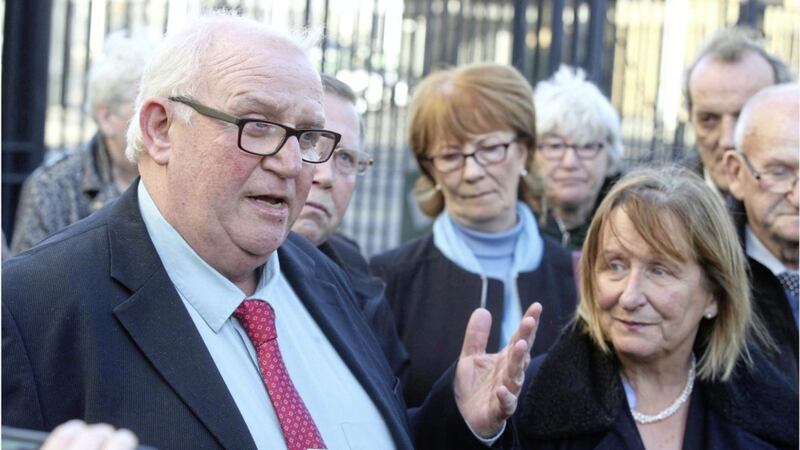THE irony of a profession dedicated to making complex concepts and debates as straightforward and concise as possible being recognised by something with as unwieldy a title as 'International Day to End Impunity for Crimes against Journalists' is not lost on me.
'IDEI' has been marked every November since 2013, but has come into its own in 2018.
We are in a period of extraordinary threat to journalism.
Structurally, the print industry is grappling with technological changes on a scale not seen since the invention of the printing press and newspapers as we know them.
Ideologically, it is under attack from those uncomfortable with the scrutiny it levels at the powerful, the criminal, the corrupt - all of whom now cry "fake news".
Physically, journalists around the world are losing their lives and liberty at an alarming rate - 77 killed this year, with 90 per cent of crimes of violence against journalists unpunished.
The murder of Washington Post journalist Jamal Khashoggi inside the Saudi consulate in Istanbul was the latest example of brutal suppression of journalism.
The fact we know anything about his death is not due to the Turkish authorities' unstinting support for press freedom - the country ranks 157th in Reporters Without Borders' index and is the world's biggest prison for journalists, some sentenced to life imprisonment.
It is the regional power struggle between Turkey and Saudi Arabia which is behind its ostentatiously candid detailing of his final hours.
But, it is a sign of the creeping acceptance of the previously unthinkable that the same evening it was revealed that Mr Khashoggi had been strangled to death as soon as he entered the consulate, that a media boss thought it amusing to dress up as a Saudi executioner at a Halloween party.
Asif Zubairy, head of commissioning for comedy and entertainment at ITV, arrived at a celebrity party in a blood-stained costume, clutching a severed hand.
He has apologised that "my Halloween costume may have offended some people" and that appears to be the end of the matter.
In the US, the first amendment guarantees press freedom, while its president brands critical coverage "fake news" and its producers the "enemy of the people", last week revoking CNN's chief White House correspondent Jim Acosta's press credentials.
"It's distraction. You're reporting on reporters, not the 'real' story," an increasingly vocal lobby has accused the 'mainstream media', implying a concern about this alarming behaviour is self-indulgent navel-gazing.
They miss the point that totalitarianism rarely starts with the murder in the consulate.
It chips away at reputation until people no longer trust the source and in time barely register its absence.
That is why CNN is suing the White House to demand the immediate return of the media pass.
The cable giant stresses it is bringing the lawsuit against the White House on behalf of all journalists, not just CNN: "This could have happened to anyone. If left unchallenged, the action of the White House would create a dangerous chain effect for any journalist who covers our officials."
We have seen two Belfast-based journalists, Barry McCaffrey and Trevor Birney, arrested and questioned for 14 hours on how material held by the Police Ombudsman ended up in their documentary on the notorious 1994 Loughinisland massacre.
No Stone Unturned broke new ground by publicly naming those it said were suspects in the UVF murders of six men in a bar.
While two police forces coordinated their arrests of journalists seeking the truth, the victims' families continue to wait for justice.
The saying goes that those who do not learn from history are doomed to repeat it.
We will not learn from our history without journalists writing its 'first rough draft'.
It is a rough draft, and we must not lose our humility as we fight to defend and protect our mission.
As the Ballymurphy Massacre inquest began this week, Fr Hugh Mullan's niece Geraldine McGrattan highlighted this fallibility, saying the family's aim was "to prove that my uncle was not a gunman as was stated in some of the newspapers at the time, that he was an innocent priest going about his pastoral duties".
That was the 'official' version in 1971. We talk to people, we ask questions, we seek the truth. Numerous news stories since then have set the record straight.
At its best, journalists can help uncover truth, more often than not a truth that people in power do not want revealed.
The first draft is just that - a start.








